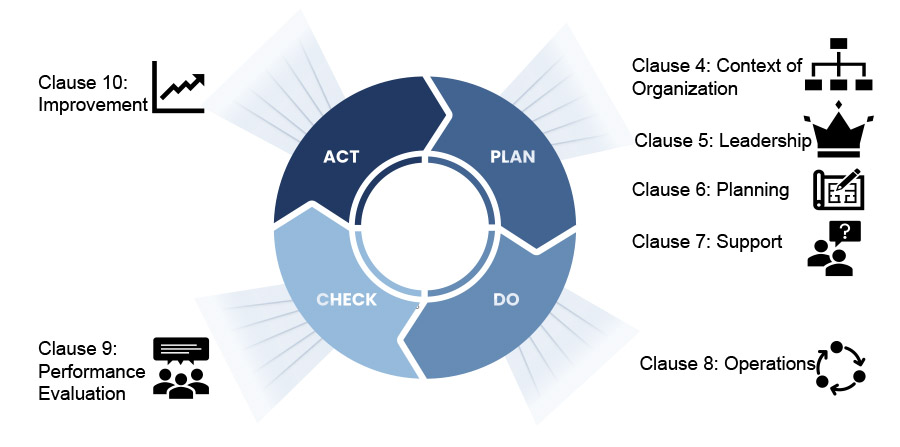
Businesses are increasingly recognizing the importance of resilience, implementing robust Business Continuity Management (BCM) practices. In its slipstream, Managed Business Continuity Management Services is emerging as a strategic ally that takes organizational resilience one level up, explains Muhammad Kashif Yousuf from ECOVIS Al Sabti.
The landscape of modern business is vulnerable with potential disruptions, ranging from natural disasters to cyber threats and geopolitical instability. In such an environment, maintaining an up-to-date BCM practice is not merely advisable – it is a necessity for robust operations.
A comprehensive BCM framework enables organizations to anticipate, prepare for, and respond to disruptions in a proactive and coordinated manner.

Muhammad Kashif Yousuf from ECOVIS Al Sabti
By identifying critical business functions, assessing risks, and developing effective response plans, organizations can minimize the impact of disruptions and ensure the continuity of operations.
Effectively implementing BCM is however easier said than done, for a number of reasons including:
Unavailability of BCM Professionals
The major challenge is the scarcity of qualified and experienced resources proficient in BCM methodologies and practices to be performed on regular basis.
Regulatory Requirements
The regulatory landscape in KSA, governed by entities such as the Saudi Arabian Monetary Authority (SAMA), the Capital Market Authority (CMA), and the Digital Government Authority (DGA), ensures effective BCM compliance on businesses to safeguard the interests of investors and shareholders. Navigating these regulatory obligations requires a robust and agile BCM framework with exercised and tested on frequent basis.
Ever-Changing Business Dynamics and Risks
The evolving risk landscape poses a challenge, as organizations must continuously adapt their BCM strategies to mitigate emerging threats. Upon every change, either in key people, process, premises, assets, or information, BCM framework need to be re-visited and updated.
Increasing Probability of the increasing probability of disruptions further underscores the urgency of bolstering organizational resilience.
Awareness on Overall BCM Management
Being a management framework, just like any other ongoing framework in the organization, BCM requires regular attention from top to bottom levels of Management, thus create a continues need of awareness and understanding.
A lack of awareness among management and staff about how critical it is to keep their BCM arrangement up-to-date; can hinder its acceptance and implementation within organizations, highlighting the need for comprehensive education and training initiatives.
An Effective Approach for Managing BCM
At its core, BCM is a management practice that operates on the Plan-Do-Check-Act (PDCA) model, emphasizing continual improvement and enhancement. This iterative approach enables organizations to systematically plan, implement, evaluate, and adjust their BCM strategies to align with evolving business needs and emerging threats.

Alignment of ISO 22301 and PDCA Cycle
In addition, by promoting a culture of resilience and adaptability, organizations can enhance their capability to effectively manage disruptions and maintain business continuity in the face of adversity.
The Pillars of the BCM Managed Service Model
A three-pillar BCM Managed Service Model which is comprised of Exercising and testing, Maintenance, and Review; can be highly effective to manage the BCM Program after its full scale implementation in any organization.
These pillars form the foundation of a proactive and comprehensive strategy for managing and maintaining the BCM Program, ensuring that organizations are well-prepared and stay up-to-date to effectively respond to unforeseen disruptions and safeguard business continuity.

Three Pillar Model for BCM as a Managed Service
Rolling out Managed BCM
So, how does the Managed Service Model work in practice?
Exercising & Testing involve conducting regular drills and simulations to assess the effectiveness of BCM plans and procedures, identify areas for improvement, and enhance organizational readiness.
Maintenance entails ongoing monitoring and updating of BCM documentation, policies, and protocols to reflect changes in the business environment and emerging threats.
Review involves conducting post-incident analyses to evaluate the effectiveness of BCM responses, identify lessons learned, and implement corrective actions to strengthen future resilience.
In implementing the BCM Managed Service Model, organizations benefit from a holistic approach that ensures the ongoing relevance and effectiveness of their BCM plans and arrangements.
Through meticulous attention to detail and proactive management, all facets of BCM, including Crisis Management Plans, Crisis Communication Plans, Business Continuity Plans, Disaster Recovery Plans, and Cyber Resilience Plans, remain continuously updated and aligned with organizational objectives and emerging threats.
This proactive approach not only enhances organizational resilience but also instills confidence among stakeholders, demonstrating a commitment to safeguarding business operations and mitigating risks.
By entrusting the management of BCM to experienced professionals through a Managed Service model, organizations can focus on their core activities with the assurance that their resilience strategies are in capable hands.
Conclusion
In conclusion, the adoption of Managed Business Continuity Management Services represents a tactical arrangement for a strategic necessity for organizations seeking to enhance their resilience in the face of disruptions. Moreover, by embracing the Three Pillars of the BCM Managed Service Model, organizations can proactively manage risks, mitigate the impact of disruptions, and ensure the continuity of their business operations.
In an increasingly uncertain and volatile business landscape, investing in robust BCM practices is not just a prudent decision – it is essential for long-term viability and success.
About the author: Muhammad Kashif Yousuf is an Associate Director at ECOVIS Al Sabti and is an expert in Business Continuity Management.
link






